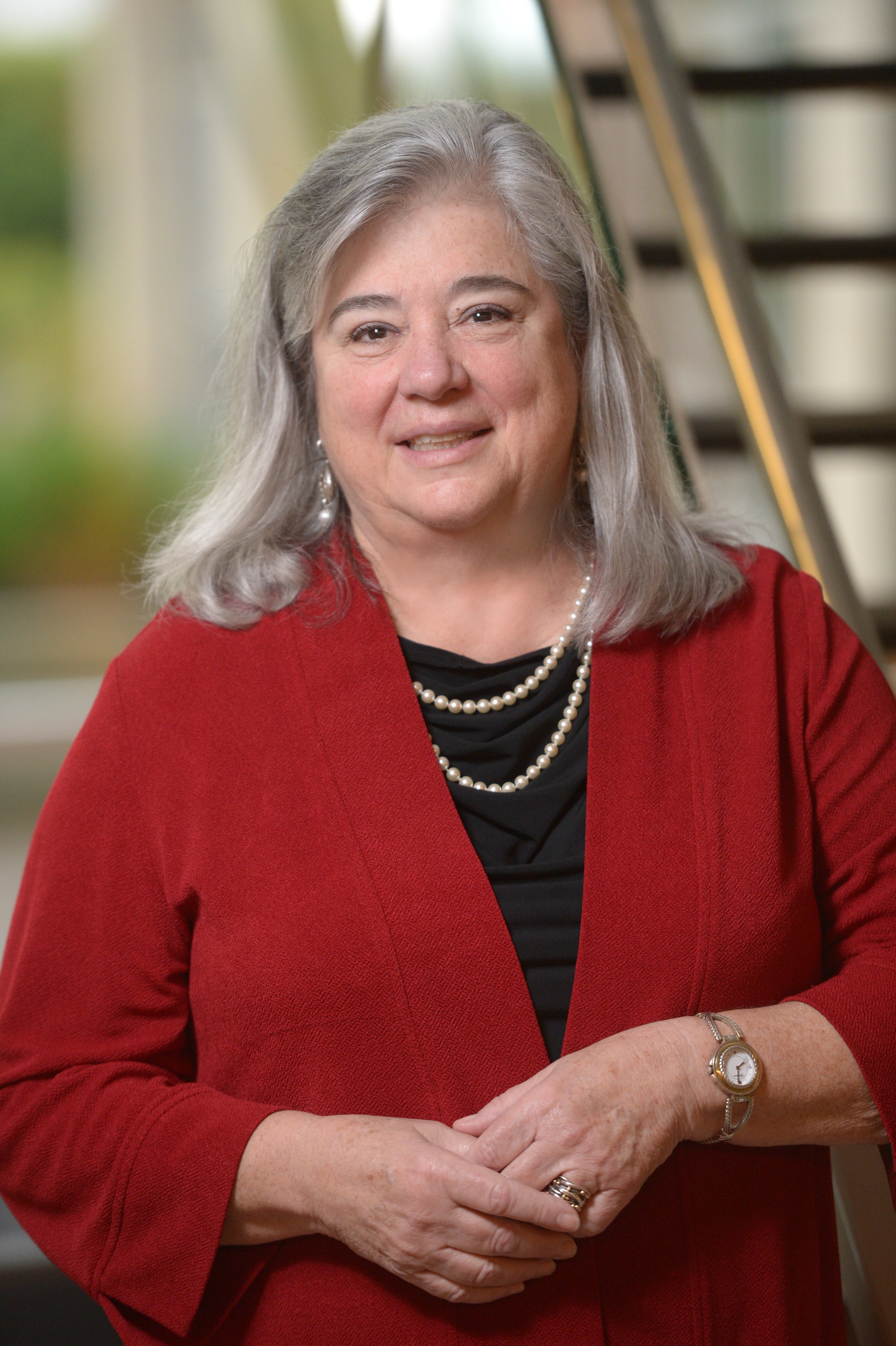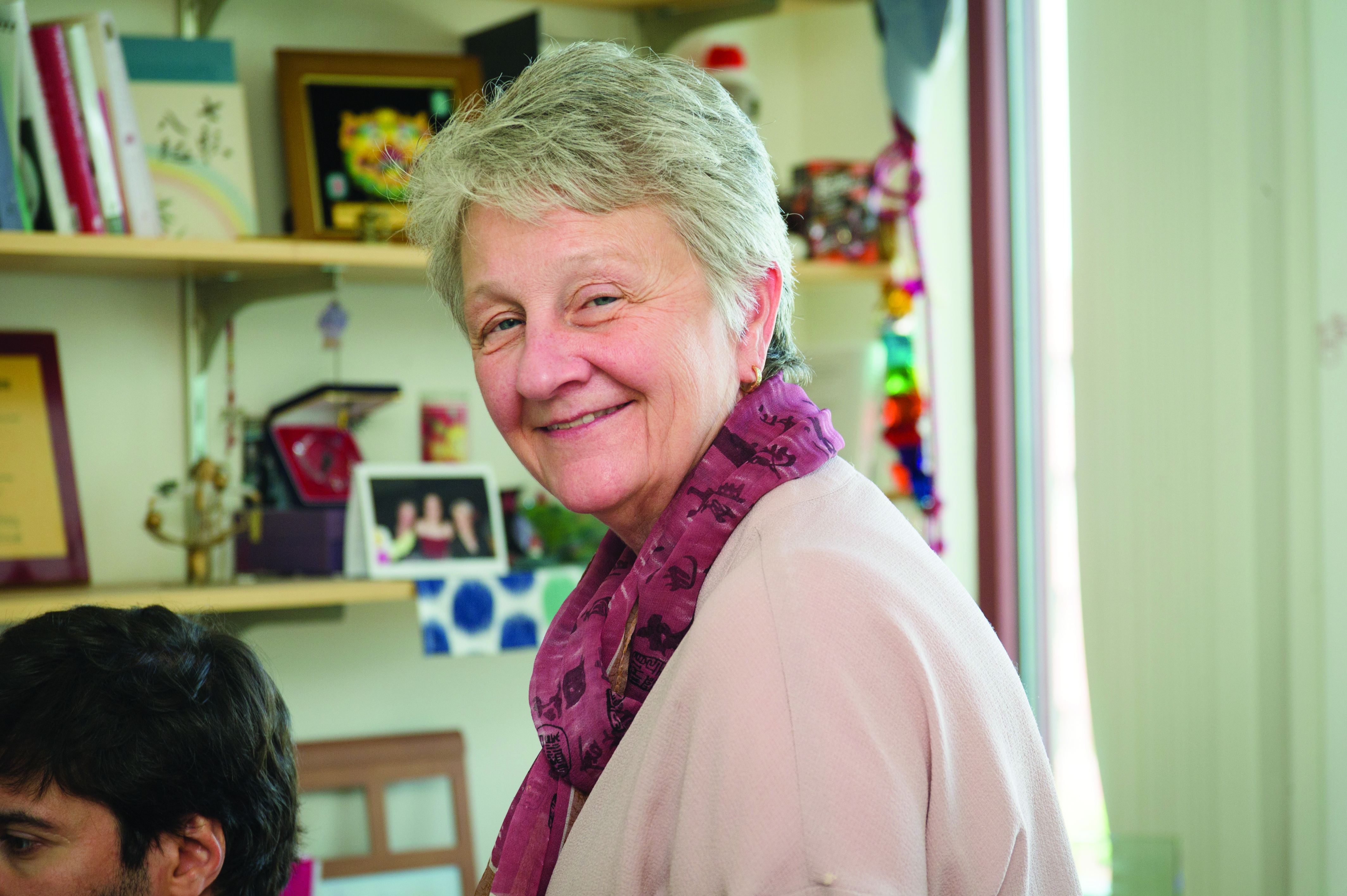Considerations for Care of LGBTQ+ Patients With Cancer
Cancer in the lesbian, gay, bisexual, transgender/transsexual, or queer/questioning (LGBTQ+) population has remained underresearched, and information that is known is less likely to reach oncology professionals who could use it to improve care. In “Care of the LGBTQ+ Patient With Cancer,” Carlton Brown, RN, PhD, AOCN®, NEA-BC, FAAN, president of Zenith Health Care Solutions, Inc., in Portland, OR, and David Rice, PhD, MSN, RN, NP, NEA-BC, director of education, evidence-based practice, and research at the City of Hope National Medical Center in Duarte, CA, examined the delivery of quality cancer care in people identifying as LGBTQ+, along with strategies for addressing their unique needs and minimizing barriers to care. They presented the session on Thursday, April 11, 2019, at the ONS 44th Annual Congress in Anaheim, CA.
What Genetics Means in Hereditary Cancer
Genetic testing and genetics care are playing an increasingly important role in oncology and are continually evolving, Suzanne M. Mahon, DNSc, RN, AOCN®, AGN-BC, of the School of Nursing at Saint Louis University in Missouri, said during a session on Thursday, April 11, 2019, at the ONS 44th Annual Congress in Anaheim, CA.
Nurses Must Be Pharmacovigilant With Emerging Cancer Treatments
The field of cancer care is changing and evolving like never before. In 2018, the U.S. Food and Drug Administration (FDA) approved a number of new biosimilars, targeted agents, and agents that target certain mutations regardless of tumor site. New requirements for accreditation and reimbursement mean oncology nurses are being used in a growing number of new or developing roles including navigation and survivorship. On Thursday, April 11, 2019, Kathleen Wiley, RN, MSN, AOCNS®, addressed these emerging trends and more in a clinical chat at the ONS 44th Annual Congress in Anaheim, CA.
We Are All Florence Nightingale

At first this seems like a bold statement, but think about it for a moment. What do we know about Florence Nightingale? She is credited as the founder of modern nursing and embodied nursing leadership and advocacy. She improved hygiene practices in hospitals, resulting in fewer infections and deaths. She pioneered statistical analysis on the conditions surrounding the provision of medical care, especially during the Crimean War, and used visual presentations (or early infographics). She created patient services, such as a kitchen that prepared special dietary meals for patients, a laundry to provide clean linens, and a library for patients’ intellectual stimulation.
Nurses Have a Pivotal Role as Patient Advocates in the Opioid Crisis
As the current landscape of opioid pain control becomes more complex, oncology nurses remain vital to safe and effective treatment. During a session on Wednesday, April 10, 2019, at the ONS 44th Annual Congress in Anaheim, CA, Tonya Edwards, MSN, MS, RN, FNP-C, of the University of Texas MD Anderson Cancer Center in Houston, and Timothy Tyler, PharmD, FCSHP, FHOPA, of Desert Regional Medical Center’s Comprehensive Cancer Center in Palm Springs, CA, discussed the challenges of opioid pain management as well as actions nurses can take to protect patients.
Nurses Use Evidence-Based Practice to Bust Oncology Myths
Although nurses strive to promote evidence-based interventions, many practices and beliefs persist despite limited research to support them. During a session on Wednesday, April 10, 2019, at the ONS 44th Annual Congress in Anaheim, CA, Nancy Houlihan, MA, AOCN®, of Memorial Sloan Kettering Cancer Center in New York, NY, Lynn Gallagher-Ford, PhD, RN, NE-BC, DPFNAP, FAAN, of Ohio State University, Helene Fuld Health Trust, National Institute for Evidence-Based Practice in Nursing and Healthcare, in Columbus, and Suzanne Dixon, MPH, MS, RD, of No Nutrition Fear in Portland, OR, instructed nurses on how to be myth busters in oncology practice settings.
Resources Are Available to Guide Management of Immunotherapy-Related Adverse Events
Immunotherapy has evolved into the “fourth pillar” of cancer care, along with surgery, chemotherapy and radiation therapy, according to Laura S. Wood RN, MSN, OCN®, of the Cleveland Clinic Taussig Cancer Center in Ohio and Krista M. Rubin, MS, RN, FNP-BC, of Massachusetts General Hospital in Boston, who spoke during a session on Wednesday, April 10, 2019, at the ONS 44th Annual Congress in Anaheim, CA. Immunotherapeutic agents, however, are vastly different from chemotherapies and have a distinct toxicity profile that advanced practice nurses must be familiar with.
- Read more about Resources Are Available to Guide Management of Immunotherapy-Related Adverse Events
- Add new comment
Communication and Conflict Resolution Become More Important in End-of-Life Care
The communication deficit among healthcare professionals, families, and patients is a barrier in the delivery of end-of-life care and can result in conflict, according to Elizabeth Thiel, MD, MS, of the Medical College of Wisconsin in Milwaukee, and Andria Caton, BSN, RN, OCN®, CHPN, of Northeast Georgia Medical Center in Gainesville. Thiel and Caton discussed end-of-life communication and the role that nurses play in those conversations during a session on Wednesday, April 10, 2019, at the ONS 44th Annual Congress in Anaheim, CA.
- Read more about Communication and Conflict Resolution Become More Important in End-of-Life Care
- Add new comment
Microfluidic Device May Pave Way for More Liquid Cancer Biopsies

Researchers have developed a device that can separate various cell types in patient blood samples based on the cell size, which may one day enable rapid, inexpensive liquid biopsies to help clinicians detect cancer and develop targeted treatment plans. Findings from the research that led to the device are reported in Microsystems and Nanoengineering.
Research Sheds Light on the Complexities of Shared Decision Making

Making a treatment decision for a cancer diagnosis is a very complex and challenging event for patients. This is particularly evident among men with prostate cancer. Because so many treatment options exist, often without a single best therapeutic or medical outcome, many men with prostate cancer may have challenges when making a treatment decision. Most patients rely on their providers to help them better understand their diagnosis, available treatments, impact, and side effects from treatment, but patients will ultimately seek external information to inform their decision-making process.





